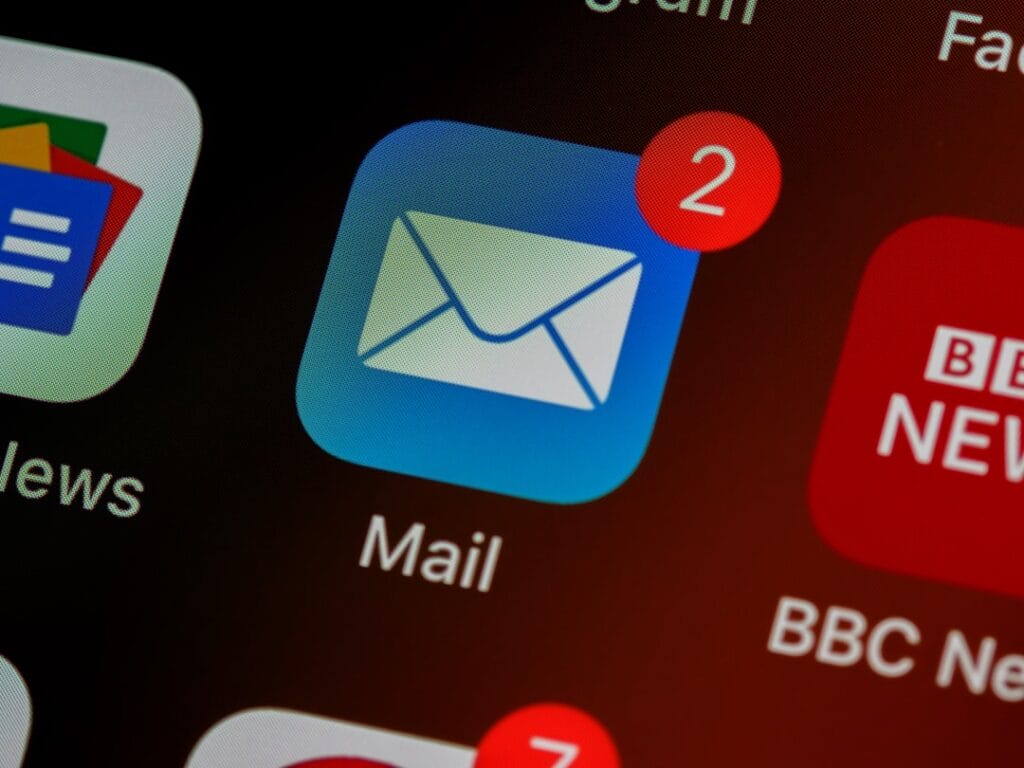B2B (business-to-business) lead generation is a strategic process aimed at identifying and attracting businesses potentially interested in another company's products or services. This process involves qualifying prospects based on their interest and suitability for the proposed offer, with the aim of converting them into potential customers. This is crucial to fueling the sales pipeline and ensuring the long-term growth of the company.
It requires in -depth understanding of the target market and the use of specific tactics and tools. lead generation methods include content marketing, referencing, social media, email marketing, networking and professional events. The objective is not simply to attract a large number of prospects , but rather to target qualified prospects having a real interest in the supply of the company.
This approach requires a targeted, personalized strategy to reach the appropriate businesses and key decision-makers within those organizations. lead generation is therefore a complex and ongoing process, essential to commercial success in the business-to-business sector.
Summary
- B2B lead generation involves identifying and attracting potential prospects for a business.
- The best strategies for generating B2B leads include content marketing , referencing, e-mail marketing and social media.
- To generate qualified leads in B2B, it is essential to target the right companies and the right people within those companies.
- Generating B2B leads is important because it can drive business growth and increase sales.
- The essential tools to generate B2B leads effectively include CRM, marketing automation tools and lead management platforms.
The best strategies for generating B2B leads
There are several effective strategies to generate B2B leads effectively. First of all, content marketing is a key strategy which consists in creating and sharing relevant and useful content for your target audience. This may include blog articles, white pods, case studies, videos, infographics, and many other content forms that make it possible to educate and engage your potential prospects.
SEO is also crucial to attract organic traffic to your website and increase your business visibility to companies looking for your products or services. In addition, e-mail marketing is a proven strategy to generate b2en leads sending personalized and relevant emails to your potential prospects, you can establish a relationship with them and encourage them to learn more about what your business can offer them. Social media is also a powerful tool for the generation of B2B leads, because they allow you to interact with your target audience, share relevant content and promote your offers in a targeted manner.
Finally, networking and attending professional events are effective strategies for building relationships with other businesses and generating qualified leads.
How to generate qualified leads in B2B

Generating qualified leads in B2B requires a strategic and targeted approach to attracting the right companies and the right people within those companies. To do this, it is essential to clearly define your target audience and identify the businesses that are most likely to be interested in what your business offers. This can be done using criteria such as company size, industry, geographic location, specific needs, etc.
Once you've identified your target audience, it's important to create relevant and useful content that addresses their specific needs and challenges. This can include case studies, customer testimonials, product demos, webinars, etc. By sharing this content across your various communication channels, you can grab the attention of your potential prospects and encourage them to learn more about what your business can offer them.
Additionally, personalization is key to generating qualified B2 leads. By tailoring your message and offers based on the specific needs of each potential prospect, you can increase your chances of converting them into potential customers. This can be done by using marketing automation tools that track the online behavior of your potential prospects and send personalized messages based on their actions.
The importance of generating B2B leads for your business
| Metrics | Data |
|---|---|
| Leads conversion rate | 25% |
| Acquisition cost per lead | 50€ |
| Number of leads generated per month | 100 |
| Increase in turnover thanks to leads | 30% |
The generation of B2B leads is crucial for the growth and long -term success of your business. By attracting qualified prospects that are really interested in what your business has to offer, you can feed your sales pipeline and increase your chances of concluding profitable business. In addition, the generation of B2B leads allows you to establish relationships with other companies that can be beneficial for your long -term business.
Additionally, B2B lead generation allows you to increase the visibility and awareness of your business among your target audience. By sharing relevant content and interacting with your potential prospects across different communication channels, you can build trust and interest in your business. This can help you stand out from the competition and position your business as a leader in your industry.
B2B leads allows you to optimize your marketing efforts and maximize the return on investment of your campaigns. By identifying the companies that are most likely to be interested in what you offer, you can focus your resources on the most promising prospects and increase your chances of concluding profitable business.
Essential tools for generating B2B leads effectively
To generate B2B leads effectively, it is essential to use the right tools to automate and optimize your marketing efforts. First of all, a customer relationship management (CRM) is essential to monitor and manage your potential prospects throughout the sales process. A CRM allows you to store all the relevant information on your potential prospects, to follow their online behavior, and to send personalized messages according to their actions.
In addition, marketing automation tools are essential to automate certain marketing tasks such as sending personalized emails, monitoring online behavior, social media management, etc. This allows you to optimize your marketing efforts and increase the efficiency of your B2B lead generation campaigns Finally, analysis tools are essential to measure the effectiveness of your B2B lead generation campaigns and optimize your strategies accordingly.
By tracking the performance of your different campaigns across all communication channels, you can identify what works best and adjust your tactics accordingly to maximize ROI.
The key steps to generating B2B leads effectively

Step 1: Identify your target audience
First of all, it is important to clearly identify your target audience and their specific needs. This will allow you to create relevant and useful content that grabs the attention of your potential prospects.
Step 2: Use a multi-channel approach
Next, it's essential to use a multi-channel approach to reach your potential prospects where they are. This can include email marketing, social media, SEO, networking, attending professional events, etc. Additionally, it is important to use analytics tools to measure the effectiveness of your campaigns and adjust your tactics accordingly.
Step 3: Measure and Adjust
By tracking the performance of your different campaigns across all communication channels, you can identify what works best and adjust your tactics accordingly to maximize ROI.
Measuring the success of your B2B lead generation campaigns
To measure the success of your B2B lead generation campaigns, it is essential to use key performance indicators (KPIs) that allow you to evaluate the effectiveness of your marketing efforts. First of all, conversion rate is a crucial KPI that measures the number of potential leads that were converted into potential customers through your campaigns. Additionally, cost per lead is an important KPI that measures the average cost required to acquire a new lead.
This allows you to evaluate the financial effectiveness of your campaigns and optimize your resources accordingly. Finally, the engagement rate measures the interaction and interest that your campaigns generate among your target audience. This could include the number of emails opened, the number of clicks on your ads, the number of social media interactions, etc.
By measuring these KPIs throughout the process, you can assess the overall effectiveness of your campaigns and adjust your tactics accordingly to maximize ROI.
If you are looking for advice on B2B lead generation, you should take a look at the article on how to sustainably generate leads with inbound marketing . This article offers effective strategies for attracting qualified leads through a content-driven, value-driven approach. This could be a valuable resource for your business.
FAQs
What is B2B lead generation?
B2B lead generation refers to the process of creating and qualifying potential leads or customers for businesses that target other businesses as customers.
What are the main B2B lead generation channels?
Top B2B lead generation channels include content marketing, SEO, email marketing, social media, events and trade shows, and influencer marketing.
What are the benefits of B2B lead generation?
The generation of B2B leads allows companies to identify and target qualified prospects, increase their sales pipeline, improve their conversion rate and maximize their return on marketing investment.
How to measure the effectiveness of B2B lead generation?
The efficiency of the generation of B2B leads can be measured using KPI such as the conversion rate, the cost by Lead, the closing rate, the return on investment and the customer value of the customer.
What are the best practices for B2B lead generation?
Best practices for B2B lead generation include clearly defining target personas, creating relevant content, optimizing landing pages, tracking and qualifying leads, and working closely between marketing and sales teams. .





